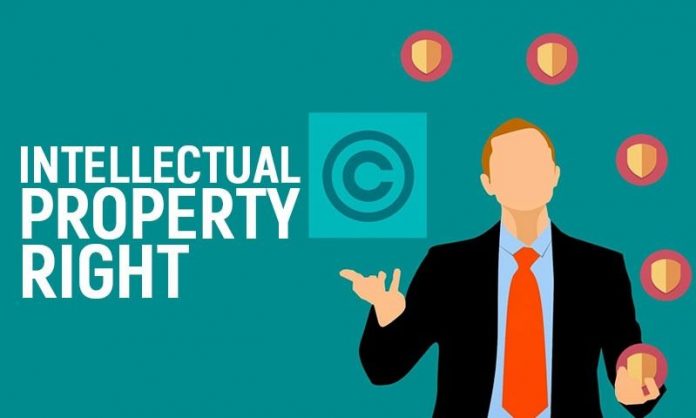This article is written by Vikash Dhaka, pursuing a Diploma in Intellectual Property, Media and Entertainment Laws from LawSikho.
Table of Contents
Introduction
There are various modes of gathering evidence in IP suits. It can be interrogatories or cross-examination etc. Section 30 of CPC talks about the interrogatories in great depth. Interrogatories is a tool or a medium that helps parties to resolve the matter before the trial begins. Parties exchange an affidavit that consists of a set of questions. The parties have to submit the affidavit within 10 days of receiving the affidavit or in the time given by the honorable court. Section 138 of the Indian Evidence Act talks about cross-examination. Fundamentally, cross-examination is the examination of the testimony of the witness by the opposing party. This article will talk about the pros and cons of Interrogatories and cross examination.
Interrogatories
As we all know our courts are already burdened with a lot of cases. As a result, there is a huge backlog of cases. It is sensible to opt for interrogatories in case the parties have any dispute. Interrogatories are a type of discovery (defined under the Section 30 of the CPC); wherein with permission of the court, a set of questions are given to the parties involved. Discovery is the medium that helps the parties to get the evidence before the trial begins. Discovery helps the party to clear the ambiguity regarding the facts of the case. Each party has to answer the question in the affidavit and under the oath. These questions are a medium to form the issues and derive the contention of the case. When one party is unable to answer the other party becomes eligible to take the help of the court to get the answers. There are cases or disputes which are resolved through interrogatories only. In the case of Govind Narayan Ors. vs. Narendra Nagda Ors (HIGH COURT OF JUDICATURE FOR RAJASTHAN AT JODHPUR S.B. Civil Writ Petition No. 7803 / 2016), the court observes the importance of Interrogatories in resolving the dispute between the parties. It saves the time of the court and most importantly money of each party is also conserved or saved.
Under the Order XI of CPC, the parties need to make sure that whatever answers they are writing is true because it is written under the oath. In case, a knowingly false statement comes across the court, the said party will be liable under perjury. The set of questions will be at the discretion of the other party, there is no hard and fast rule which talks or says that particular questions will be asked. No, we don’t have such a pattern. There will be times when the parties are not willing to answer the questions. In that case, the other party can seek the same with the help of the court. However, the question should be of such nature or relevant to the present case or suit. The parties have to make sure that they ask relevant questions and questions which are necessary to the case. The purpose of the questions is to form the issues and contention for the case. The party will be aware of all the material facts or facts related to the case. There will be instances where the parties after giving the set of questions, will come into an agreement or a compromise. These questions help the attorney of the party to form the contention. These attorneys can suggest their clients based on the questions. Questions that are confidential or infringes public interest, should not be asked or if asked need not reply the same.
Cross-Examination
Cross-examination is defined under Section 138 of the Indian Evidence Act, 1872. Cross-examination is the re-examine the witness by the opposing party. The opposite attorney put forth some questions to trick the witness in revealing some hidden facts of the respected case.
The party in whose favor, a witness gave the testimony, will be reexamined by the opposing party, such re-examination or cross-questioning is termed as Cross-Examination. The witness in IP suits can be an expert in the field. The witness can be called upon by any party with the prior permission of the court. Witnesses can give his opinion or testimony through video conferences also. Section 272-283 of CrPC and Order 16 and 18 of CPC talks about the recording of the evidence through video. The Delhi Court has given the guidelines for submitting evidence through video also. There is no mandatory provision in the law that states that witnesses should be physically present in the court. The court has accepted such testimony in many cases.
A suit can be initiated in IP if there is an infringement or objection by any person. If the parties to the dispute are confident enough to win the case, they should go for cross examination instead of interrogation provided that they have sufficient funds, resources and time.
Interrogatories vs Cross-Examination
Interrogatories and Cross-Examination are two different ways to collect evidence in IP suits. Interrogatories take place before the trial begins; Cross-Examination comes into the picture after the trial. Each of them has its advantages and disadvantages. Some people misuse the interrogatories by asking to reveal certain confidential information in a suit. Because of these tactics, few people tend to avoid interrogatories. Such tactics infringes the very purpose of the interrogatories. But, courts have considered these malpractices and prohibits such tactics. In the case of Centrient Pharmaceuticals vs. Dalas Biotech Ltd ((High Court Of Delhi) CS(COMM) 218/2019), the court denies the party who was seeking confidential information through interrogatories. However, the party can get confidential information during cross-examination. Interrogatories save a lot of money and time whereas cross-examination consumes a lot more time and money. Cross-examination comes into the show when the trial begins, the trial itself consumes time and energy and whatnot. If a party is very confident to win in a trial, they should go for that. Else, it is sensible to resolve the matter through interrogatories.
In interrogatories, the questions should be related to the case and the same should be answered but in cross-examination, such questions will be admissible even though not related to the case. Interrogatories help to resolve the issue within a limited period whereas cross-examination consumes at least three years. It is quite evident now that interrogatories and cross-examinations have their importance and relevance in any case. We can’t say that a particular method of collecting evidence is better. It differs from case to case. Some cases were resolved through interrogatories and simultaneously there are cases that were resolved through cross-examination. Interrogatories have their pros and cons. Similarly, Cross-examination has its pros and cons. It depends on the parties whether they are interested in cross examination or interrogatories. If they are going for litigation, the parties should have sufficient funds and time for the same.
Conclusion
Evidence in any suit is a fundamental part of the case. It is like make it or break it your case. When it comes to interrogatories, it saves time and money. In interrogatories, the parties put forth a set of questions in an affidavit. Cross-examination takes place after the trial. The witness gives his testimony and the same is examined by the opposite party, such re-examine is called cross-examination. Generally, the witness is the expert in their field of work. The witness can give his testimony through video conferences also. There is no mandatory rule that the witness should be present in the court. Litigations consume at least three to five years whereas interrogatories consume way less time than cross-examination. Cross-examination is a better option when the party is confident to win the case and has sufficient resources for the same. Interrogatories come into the picture when the matter is to be resolved as soon as possible.
It is prudent on the party’s side to go for interrogatories or arbitration than the whole litigation process. As we know, litigation in IP suits will consume a minimum of three to five years for the decision or judgment in the case. After the judgement by the respected court, the parties can present or put forth an appeal for the same. The parties are putting a lot of things at stake. The amount of money and time spent is huge and it is the party who will decide whether it is worth going for litigation rather than interrogatories or arbitration.
References
- www.lexology.com
- blog.ipleaders.in
- www.mondaq.com
- indiankanoon.org
- www.legalserviceindia.com
Students of Lawsikho courses regularly produce writing assignments and work on practical exercises as a part of their coursework and develop themselves in real-life practical skill.
LawSikho has created a telegram group for exchanging legal knowledge, referrals and various opportunities. You can click on this link and join:
 Serato DJ Crack 2025Serato DJ PRO Crack
Serato DJ Crack 2025Serato DJ PRO Crack











 Allow notifications
Allow notifications


